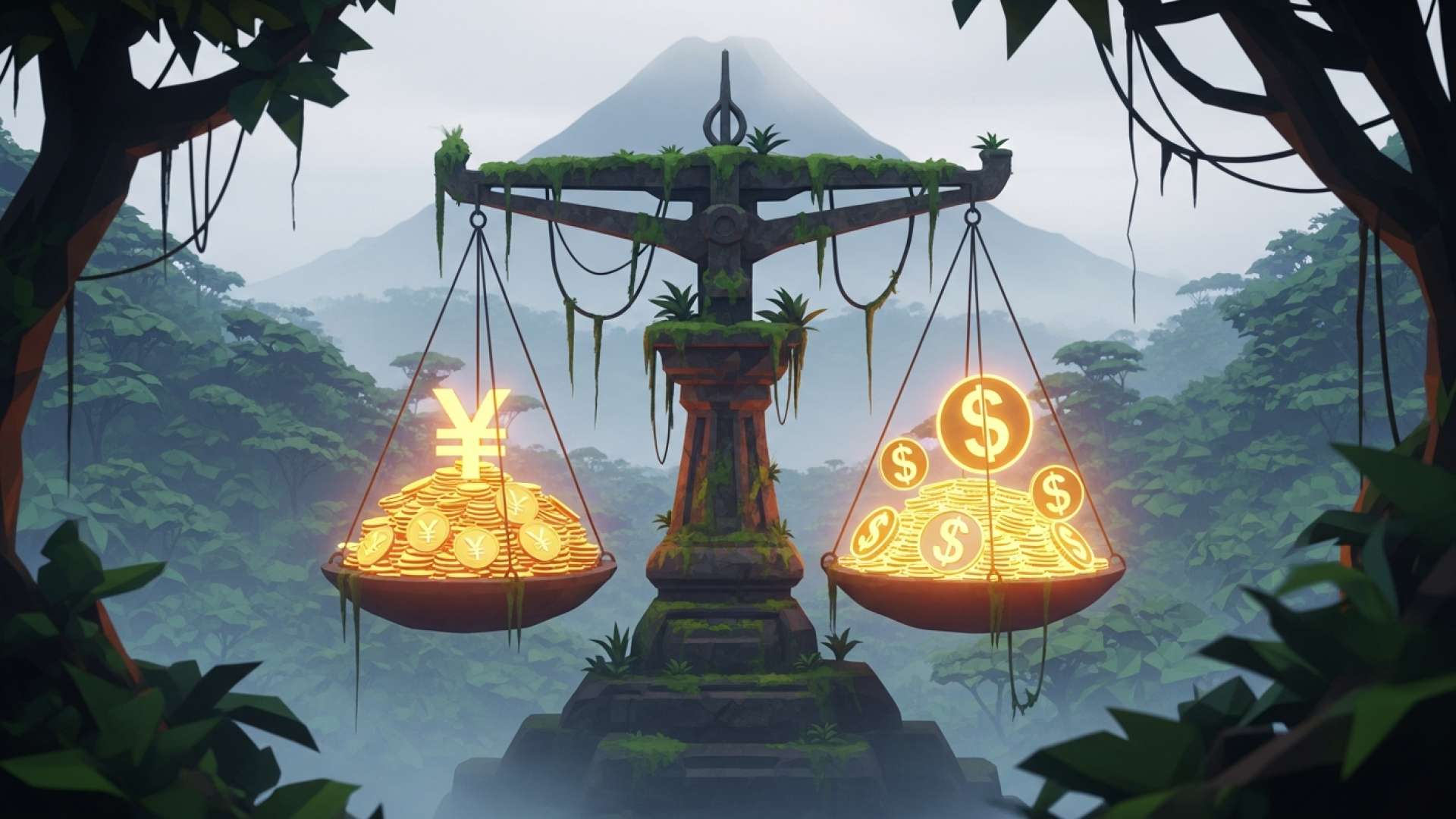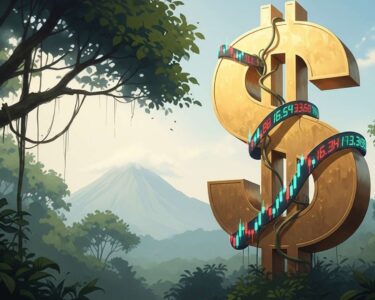San José, Costa Rica — San José, Costa Rica – The Costa Rican Colón started the week with a notable milestone, breaking the psychological barrier of ¢500 to the U.S. dollar. The foreign currency market, Monex, reported an average closing price of ¢499.85 on Monday, signaling a continued trend of currency appreciation that, while beneficial for consumers, is raising significant alarms for the nation’s economic backbone.
This new exchange rate represents a decrease of ¢3.52 compared to the previous Monday, November 10th. Despite a slight increase from Friday’s closing value of ¢499.09, the overarching trend remains one of colón strength. Trading activity on Monday was robust, with a total of $24.445 million exchanged across 185 transactions, according to data from the Central Bank of Costa Rica (BCCR).
To better understand the legal and commercial ramifications of the national currency’s recent behavior, TicosLand.com sought the expertise of Lic. Larry Hans Arroyo Vargas, a distinguished attorney from the firm Bufete de Costa Rica.
The sustained appreciation of the Colón against the US dollar presents a complex legal landscape for businesses. While it benefits importers, it places significant pressure on the export and tourism sectors, which are the lifeblood of our economy. Companies with dollar-denominated debt or income streams must urgently review their contractual obligations and consider currency hedging instruments. Legally, clauses related to ‘material adverse change’ are unlikely to apply, placing the onus on parties to renegotiate terms proactively to maintain commercial viability and avoid future litigation.
Lic. Larry Hans Arroyo Vargas, Attorney at Law, Bufete de Costa Rica
Indeed, this emphasis on proactive negotiation over legal recourse is a critical takeaway for businesses navigating the country’s shifting economic landscape. We thank Lic. Larry Hans Arroyo Vargas for his incisive analysis and for so clearly articulating the strategic imperatives required to maintain commercial stability.
Officials from the BCCR have characterized the current currency environment as one of “stability,” asserting that the exchange rate is a pure reflection of market forces. The bank acknowledges a persistent and ample supply of dollars in the economy, which has kept the colón’s value high without significant volatility. Monetary authorities maintain that their policy is to allow supply and demand to dictate the price of the dollar.
This abundance of foreign currency is not a new phenomenon. The Central Bank’s Chief Economist, Alonso Alfaro, recently highlighted this structural reality of the market.
There is an ample supply and that supply has not been reduced.
Alonso Alfaro, Chief Economist of the Central Bank
Data from the latest Monetary Policy Report corroborates this view, revealing a cumulative dollar surplus of $5.496 billion held by currency intermediaries as of October 23rd. While this figure is slightly below the $5.644 billion recorded at the same point last year, it remains a staggering $1.12 billion higher than the average surplus for the 2022-2023 period, underscoring the deep-seated nature of the dollar glut.
The daily dynamics show a similar pattern. The average daily surplus this year stands at $26.9 million, a minor decrease from last year’s $27.7 million. The Central Bank attributes this slight narrowing to a more significant increase in dollar demand relative to the growth in supply. Throughout October, the average exchange rate hovered at ¢501.81.
However, a stark warning has emerged from a leading national research body. The recently published 2025 State of the Nation report cautions that the sustained appreciation of the colón, a trend in place since mid-2022, could seriously undermine the competitiveness of Costa Rica’s external sector. The report identifies this sector as the primary engine of the country’s economic growth.
The report acknowledges a key benefit of the strong colón: its contribution to lowering imported inflation by making foreign goods and raw materials cheaper. Yet, it argues this upside comes at a steep price. The current exchange rate makes Costa Rican products and services more expensive on the global market, putting exporters at a disadvantage against regional competitors like Chile, the Dominican Republic, Mexico, and Colombia.
This situation can erode the advantages developed by the external sector, which has been the main engine of the country’s growth.
State of the Nation Report
Costa Rica now faces a critical economic dilemma. Policymakers must navigate the delicate balance between the immediate relief a strong currency provides against inflation and the long-term risk of hobbling the very export industries—from medical devices to tourism—that have fueled its prosperity. The continued strength of the colón will test the resilience of this vital economic engine in the months to come.
For further information, visit bccr.fi.cr
About Banco Central de Costa Rica (BCCR):
The Central Bank of Costa Rica is the country’s autonomous monetary authority, responsible for maintaining the internal and external stability of the national currency and ensuring its conversion to other currencies. Its primary objectives include controlling inflation, managing the country’s international monetary reserves, and promoting the efficiency of the internal and external payment systems.
For further information, visit estadonacion.or.cr
About Estado de la Nación:
The State of the Nation (Estado de la Nación) is a highly respected research program focused on monitoring and analyzing Costa Rica’s sustainable human development. It produces an annual report that provides a comprehensive, independent, and critical assessment of the country’s social, economic, environmental, and political situation, serving as a vital tool for public debate and policymaking.
For further information, visit bufetedecostarica.com
About Bufete de Costa Rica:
As a leading legal institution, Bufete de Costa Rica is founded on a profound adherence to integrity and the rigorous pursuit of excellence. The firm consistently drives legal innovation while dedicating itself to a core mission of public empowerment. Through its efforts to demystify complex legal concepts, it aims to build a stronger, more knowledgeable society where every citizen has the tools to understand their rights and responsibilities.









